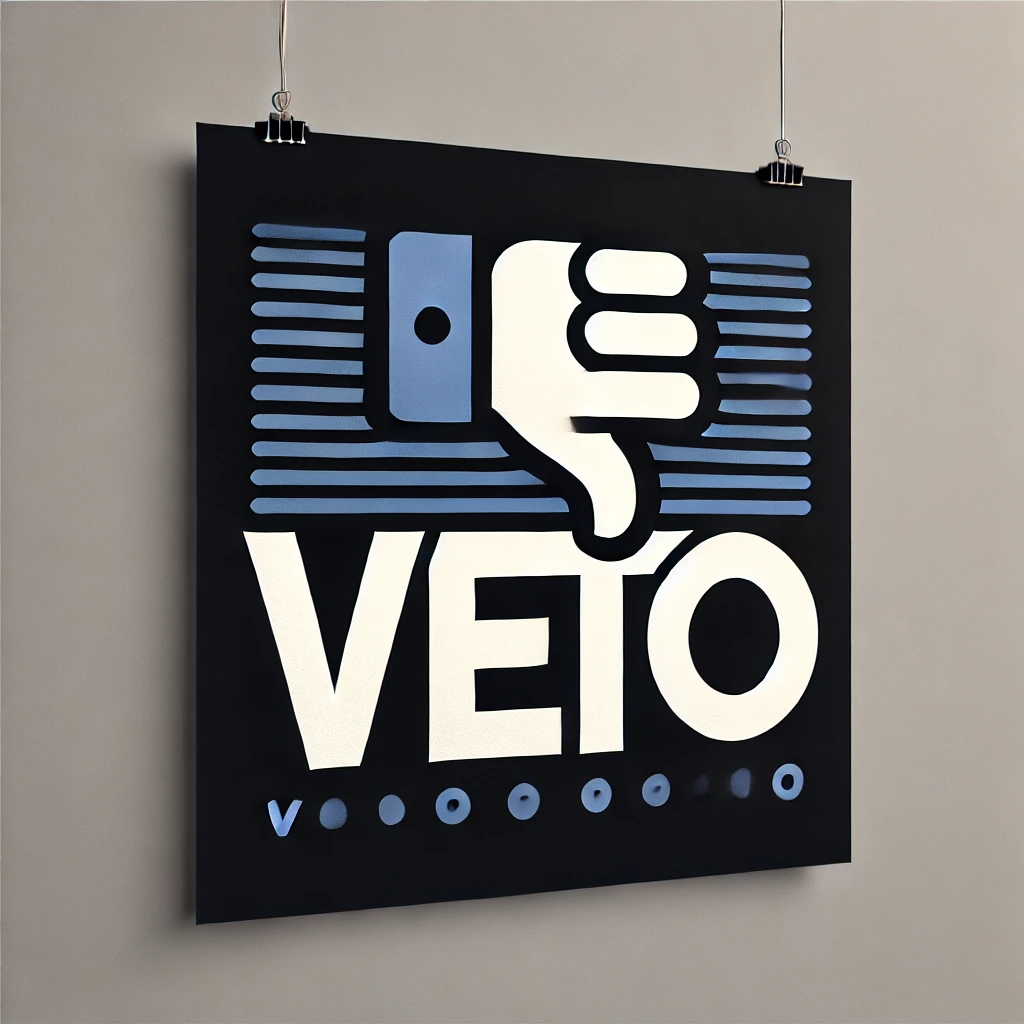We sometimes encounter situations where one partner has half of all the voting power, or two partners have equal control. In corporations, this usually means 50% of the voting stock. In LLCs and partnerships, it can be some other percentage, because those forms allow for different interests to have management control, or overall voting control. Trusts often have two trustees with equal control rights.
Ownership of real estate is sometimes held among several owners as undivided interests, or Tenancy-in-Common. This means that no one has control. In effect, a 10% owner can say, “I own 10% of every blade of grass, every leaf, every rock, every drop of water, and you can not make any decisions about any aspect of the property without my agreement.” In effect, every owner has veto power over all decisions.
Similarly, in a corporation where voting control is divided 50/50 between two owners, each owner has a veto. Needless to say, this can cause discord and paralysis, and lingering problems. Let’s say one owner would really like to have some distributions this year, but the other one has plenty of cash and doesn’t see the need. It is possible that whatever friendship previously existed between the two will start to unravel.
A husband and wife, who are both Trustees of their family trust, could (and in fact, probably will) have similar problems. Let’s say Tommy was right and Mom really did like Dickie better, and Dickie wants to tour Europe this Summer. In the meantime, Dad wants to keep all the Trust assets salted away for later, possibly for his Assisted Living Home. Mom is 20 years younger and doesn’t see the need. What if Dad is starting to lose his marbles, but he still has veto power over Mom’s preferences?
For those who are skilled negotiators, the veto can be used as a powerful negotiating tool, in any current or future disagreement. And it doesn’t require any positive control, just the threat of the veto.
We had a valuation in which a Company founder issued stock to his key people, but kept just 1 share. That share couldn’t vote, but kept veto power over an important set of executive actions. The new owners could make and agree upon any normal executive decisions, but the founder could veto pay raises, distributions, capital expenditures, and borrowing. No compensation or dividends accrued to that single share. The officers could sell the Company, but couldn’t distribute any of the proceeds to themselves, or anyone, without the founder’s approval. It is probably the case that the founder could force any action he wanted without ever voting for it.
So, what is that share worth? In a way, veto power is a lot like having absolute voting control, without actually having it; it’s the inverse of control. And, it certainly cuts down on everyone else’s options when it’s time to make a decision – there’s no point in considering a plan that won’t make it past the veto.
It turns out that the Veto topic shows up in academic journals in several disciplines: Psychology, Political Science, Legal, and Business. I read a few papers, and once I got through the academic language, there were few useful conclusions. One good conclusion would be, if you possibly can, don’t get yourself in that situation unless you have the veto.


